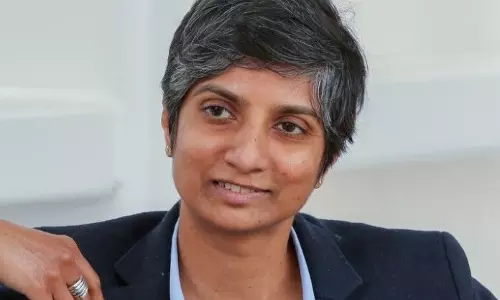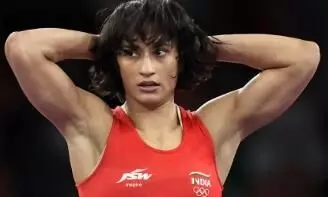
Rules are draconian, says CAS judgement in Vinesh Phogat case
text_fieldsNew Delhi: Annabelle Bennett, the sole arbitrator who heard Vinesh Phogat’s appeal at the Court of Arbitration for Sport (CAS) said the rules that caused wrestler’s complete elimination from the Paris Olympics were ‘draconian’, The Indian Express reported.
The Australian arbitrator who presided over the case made it clear that a ‘fairer solution’ would have been to uphold the first day’s results, thus to “limit the consequences” to only the 50-kg gold-medal bout, according to the report.
Phogat was disqualified for being 100g overweight in the 50 kg category.
Meanwhile, Ad Hock Division of CAS in an order on August 13 dismissed Phogat’s appeal.
However, Annabelle Bennett in a 24-page detailed order on Monday pointed out that there was ‘no wrongdoing’ on the part of Phogat.
However, Bennett stressed that the “formation or validity” of the United World Wrestling’s (UWW) competition policy was not “subject to challenge”.
Vinesh Phogat in her appeal against the UWW and the International Olympic Committee (IOC) sought to set aside the decision to disqualify her and be awarded a joint silver medal. However, UWW president Nenad Lalovic had responded that “rules are rules”.
However, Bennett said in her order that she had seen ‘logic in a rule’ that would ensure upholding the results of Phogat’s first-day bouts and that “limits the consequences to the round for which the wrestler is not eligible”.
‘The rules do not provide for such an outcome… The rules use the words ‘eliminate’ and, further, provide that the wrestler is ranked last, without rank. CAS case law is replete with the conclusion that it is not the prerogative of CAS panels or sole arbitrators to rewrite federation rules,’ she reportedly noted.
Bennett is quoted as stating: ‘The consequences of the failed second weigh-in, which do not arise from any illegal or wrongful act on the part of the applicant are, in the opinion of the sole arbitrator, draconian. A consequence of elimination without ranking from the round for which the athlete was found ineligible, having been eligible for the rounds for which she competed, would seem to be a fairer solution. However, it bears repeating that neither the formation or validity of UWW policy is before the sole arbitrator and there is no evidence or submission as to the reasons for such policy.’
Harish Salve and Vidushpath Singhania representing the Indian Olympic Association (IOA) alongside Vinesh Phogat’s legal team cited reasons for failure in second weigh-in arguing that Phogat needed to ‘eat and drink for her health’ following three ‘difficult competitions on August 6’.
Adding further it was pointed out “the distance between the venue and the Athletes’ Village left the applicant with little time to shed weight before the second weigh-in next day.























